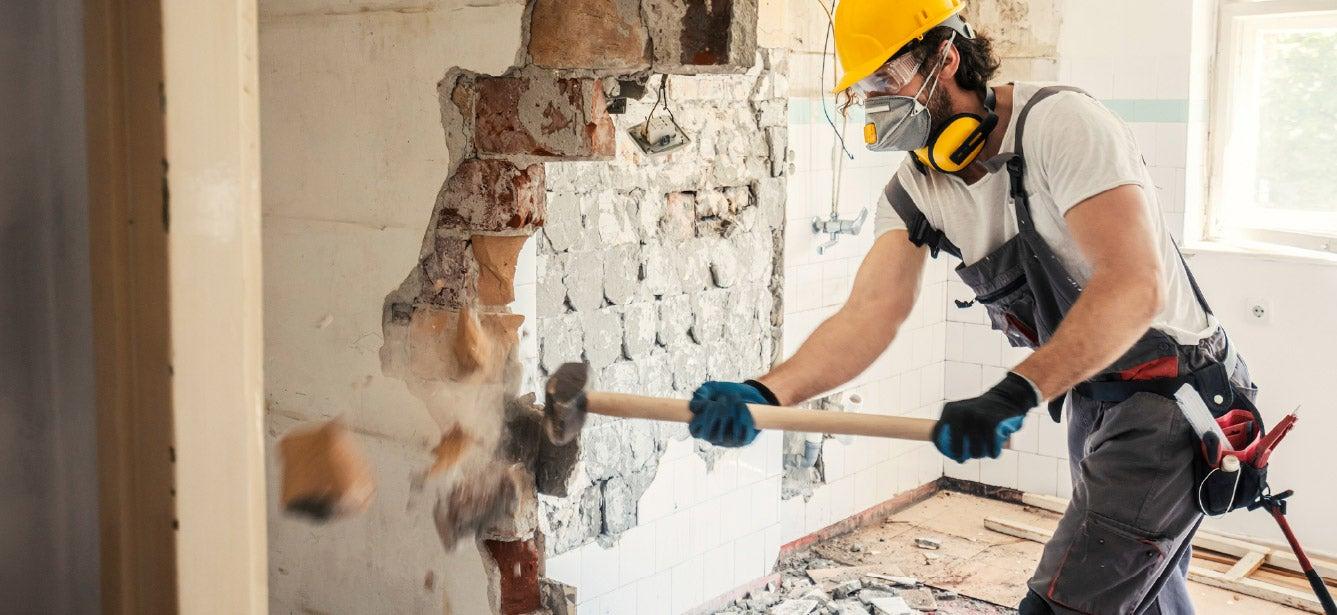
Related Topics
The red flags were there—but Dan and Lydia Cox didn't notice them at first. After all, the Boston contractor they hired had a polished-looking website and great customer reviews.
That confidence would cost them dearly. In the end, as reported by NBC Boston, the couple was out $6,000 for a job that was never finished—plus $50,000 in damage to their home's foundation.
This is far from an isolated case. According to a recent survey, roughly 1 in 10 Americans have experienced a contractor scam. Baby boomers (age 60 to 78) were most likely to encounter this type of scam. Homeowners who have fallen prey to contractor fraud lost an average of $2,426.1
“Scammers often seek out older homeowners, since they believe them to be more trusting, wealthier, and more likely to have memory or cognitive problems,” says NCOA Chief Customer Officer Josh Hodges. “That’s why this population needs to be especially aware.”
While home improvement scams (often referred to as handyman scams) are common, they’re not always easy to spot. Learning about this type of financial scam can help you identify fraudsters faster and protect your home and money.
What are home improvement scams?
These scams can take many forms. Below are some typical scenarios for home improvement scams:
- The “free” inspection. This type of home improvement scam may start with a knock at the door or a phone call. The scammer tells you they noticed a problem with your house (an old and damaged roof, for example). They offer to inspect the issue at no cost, and then provide a quote that seems reasonable. The person may claim their price is deeply discounted due to an oversupply of materials or a similar made-up reason. When you agree to let them do the work, they demand 100% payment up front or a large deposit. Often, they request that you use payment methods like an online money transfer, prepaid debit card, or gift card. They take your money—and never come back to complete the work.
- The offer of cheap post-disaster repairs. With this home improvement scam, you may receive a phone call or visit from a fake contractor after a bad storm or other natural disaster damages your house. They say they’re offering affordable repair services to all your neighbors, claiming that if you use them, you can get reimbursement through your homeowners’ insurance. You give them a deposit, but the job either never gets completed—or it’s done poorly and you’re unable to contact them to follow up.
- The home improvement project that snowballs. This home renovation scheme usually begins with hiring a contractor to complete a small job at your house. When they arrive to do the work, they point out other, costlier “issues” that demand immediate attention. If you tell them you’re not interested, they may threaten to walk away and leave your project unfinished. Or they may intentionally perform poor-quality work to ensure you’ll be calling them again soon for more repairs.
8 warning signs of a handyman scam
Home improvement scams are also sometimes referred to as handyman scams. Wondering how to tell if a contractor is legitimate? There are some red flags to watch out for when you contact—or you're approached by—a person claiming to be a professional contractor or handyperson:
- They are not licensed. While some states do not require contractors to be licensed if they earn less than a certain amount each year, a lack of credentials means you should proceed with caution.
- They ask for payment in a form that’s harder to trace or recover—such as cash, prepaid debit cards, or money transfer through an online payment app.
- They claim they have construction materials “left over” from another job to justify giving you a steep price discount.
- They try to arrange financing for your project; for example, recommending a specific lender offering home renovation loans.
- They demand full payment for the job up front.
- They tell you that you need to obtain any necessary building permits (this is normally the contractor’s responsibility).
- They try to persuade you to sign over a claim payment from your insurance company (after damage to your home from a natural disaster).
- They pressure you to make an immediate decision to hire them. Or they refuse to sign a contract, insisting instead on a “handshake deal.”
How can I avoid home improvement scams?
Scammers will always be on the prowl, looking for inventive new ways to part honest people with their hard-earned money. But there are steps you can take to avoid being lured in by a handyman scam:
- Ask for references: Since they’ve likely left a trail of deception behind them, scammers will be reluctant to share this information. They also won’t stick around while you do your “homework.” Even better than asking for references? Get contractor and handyperson recommendations only from people you know and trust.
- Find vetted contractors: Contractors who belong to the National Association of the Remodeling Industry (NARI) meet strict standards for quality and integrity. Look for professional remodelers on their website.
- Get it in writing: A binding contract outlining your project scope and costs can provide assurance that your home improvement project is completed correctly and on time.
- Hire only contractors who are licensed and insured: Check with your state’s licensing agency to see if a contractor you’re considering has the proper licensure and certifications to do the work in question.
- Read online reviews from other homeowners: Do a bit of digging online when you’re considering hiring a contractor. What have other customers said about the company’s or person’s performance and professionalism?
- Never pay in full up front: Reach out to your state consumer protection office to see if there are any laws limiting how much of a deposit contractors can require. Do not make a final payment until the project is 100% complete and you’re satisfied with the results.
What should I do if I think a contractor scammed me?
If you believe you've been scammed by a disappearing contractor or one who performed shoddy work, you may be tempted to keep it to yourself. But it’s important to speak out about suspected home improvement scams. Tell a trusted friend or family member what happened, and report the incident by contacting one (or all) of the following agencies:
- Your state’s attorney general’s office
- Your state’s consumer protection office
- The Better Business Bureau®
- The National Homebuilders Association
If your home renovations or repairs were funded by a U.S. Department of Housing and Urban Development (HUD) loan, you can report contractor fraud by calling toll-free 800-225-5342 or TTY 800-877-8339.
Abigail Bishop, Head of External Relations for Scam Prevention at Amazon, encourages people to not be afraid to report scams. “Let's just destigmatize scams altogether,” she said during a panel at Age + Action 2024. “It's not something to be ashamed of... we all are susceptible to these crimes, and we all need to be comfortable with acknowledging that we have been exposed to them, or that we have been a victim of these crimes.”
Source
1. JW Surety Bonds. 2023 JW Surety Bonds Survey - Contractor Scams. Found on the internet at https://www.jwsuretybonds.com/blog/contractor-corruption




